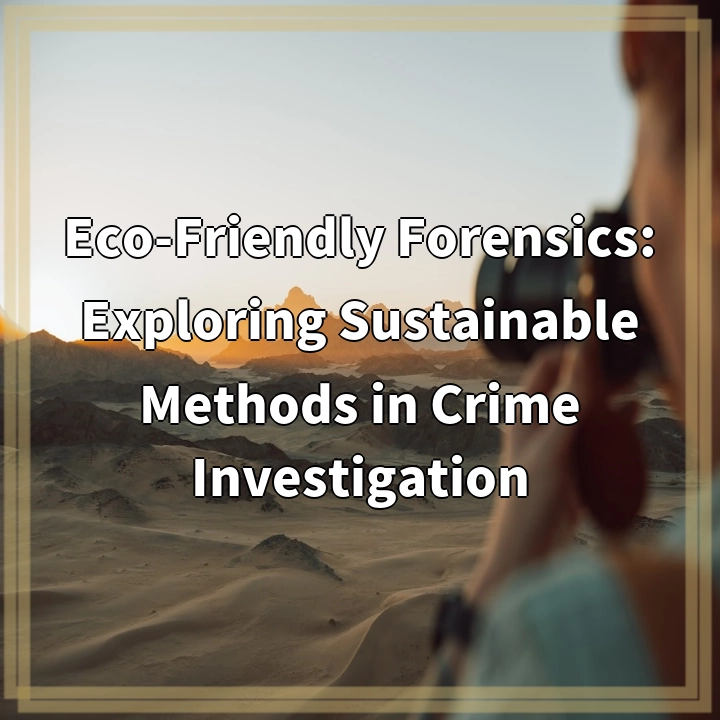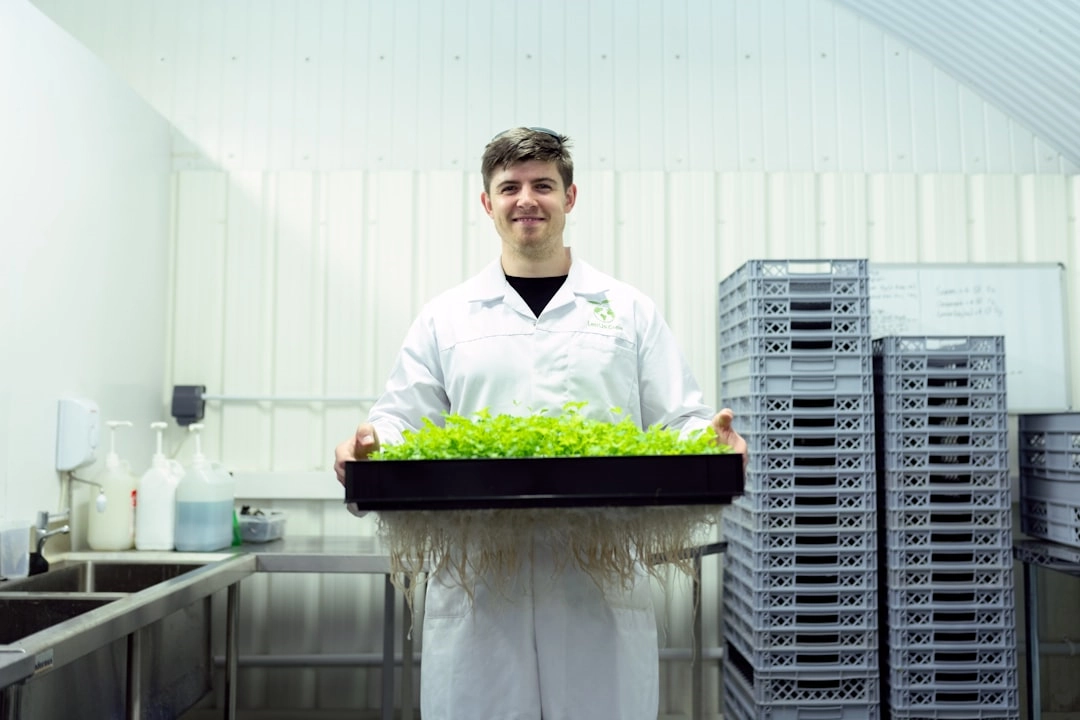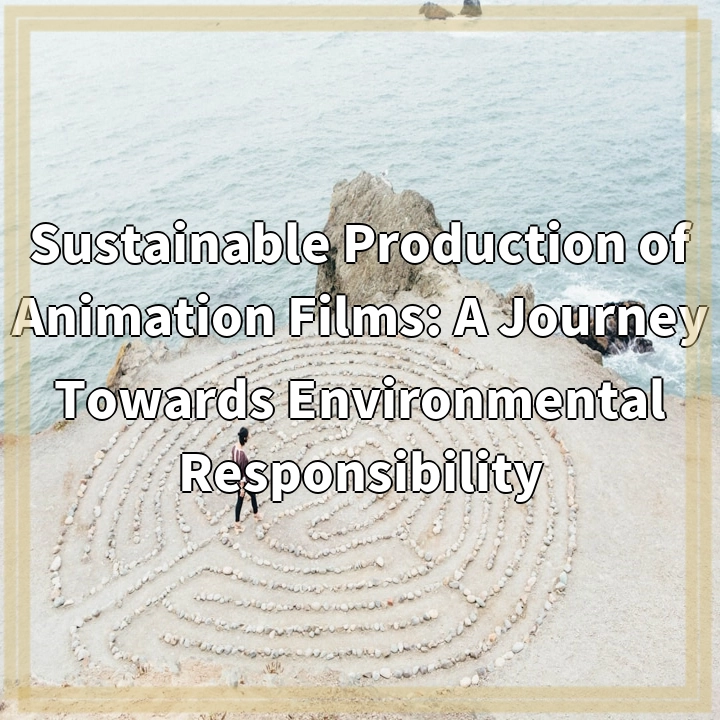
Eco-Friendly Forensics: Exploring Sustainable Methods in Crime Investigation
What it is:
Forensic science plays a crucial role in criminal investigations. It involves the application of scientific principles and techniques to gather and analyze evidence that can be used in court proceedings. However, traditional forensic methods often have negative environmental impacts, such as the use of chemicals, energy-intensive processes, and the generation of hazardous waste. Eco-friendly forensics is an emerging field that seeks to minimize these environmental footprints while still maintaining the effectiveness of crime investigation.
Real-world problems:
1. Chemical pollution: Many conventional forensic techniques involve the use of toxic chemicals, such as solvents, reagents, and developing agents. These chemicals can contaminate soil, water, and air during their production, transportation, and disposal. They pose risks to human health and can harm ecosystems if not handled properly.
2. Energy consumption: Forensic laboratories require a significant amount of energy to operate various equipment, such as microscopes, DNA sequencers, and analytical instruments. The energy consumption contributes to greenhouse gas emissions and adds to the overall carbon footprint associated with crime investigation.
3. Waste generation: Crime scenes and forensic laboratories generate various types of waste, including biological materials, chemical containers, fingerprints powders, and disposable equipment. Improper disposal of this waste can lead to environmental contamination and risks to public health.
4. Unsustainable evidence storage: Preserving evidence for long periods often requires specific environmental conditions, such as temperature and humidity control. These storage requirements can lead to high energy consumption and contribute to the overall environmental impact of forensic investigations.
5. Lack of standardized practices: There is currently a lack of standardized eco-friendly practices in the field of forensic science. This creates challenges in implementing sustainable methods across different laboratories and jurisdictions, as well as in gaining acceptance from the judicial system.
As environmental awareness grows and the need for sustainable practices becomes increasingly important, the development and adoption of eco-friendly methods in forensic science are critical. Researchers, forensic specialists, and policymakers are actively exploring sustainable alternatives to address the environmental challenges associated with crime investigation while maintaining the integrity and reliability of forensic evidence.

Eco-Friendly Forensics: Exploring Sustainable Methods in Crime Investigation
Summarized Solutions:
1. Sustainable chemical alternatives:
Exploring and implementing eco-friendly alternatives to toxic chemicals used in traditional forensic processes, such as greener solvents, non-toxic reagents, and environmentally friendly developing agents.
2. Energy-efficient practices:
Promoting the use of energy-efficient equipment and technologies in forensic laboratories, adopting renewable energy sources, optimizing operational procedures to reduce energy consumption, and implementing energy management systems.
3. Waste reduction and proper disposal:
Implementing waste management strategies, including recycling and reusing materials where possible, reducing overall waste generation, and ensuring proper disposal of hazardous waste through specialized collection and treatment methods.
4. Sustainable evidence storage:
Exploring innovative storage solutions that reduce energy consumption, such as utilizing energy-efficient storage facilities, implementing smart monitoring systems to optimize environmental conditions, and adopting sustainable preservation techniques.
5. Development of eco-friendly standards:
Advocating for the establishment of standardized eco-friendly practices in forensic science, collaborating with regulatory bodies and professional organizations to develop guidelines, promoting knowledge sharing and training programs to build awareness and acceptance.
By implementing these solutions, the field of eco-friendly forensics can significantly reduce its environmental impact while upholding the integrity and efficacy of crime investigations. These efforts contribute to a greener and more sustainable future for forensic science.















